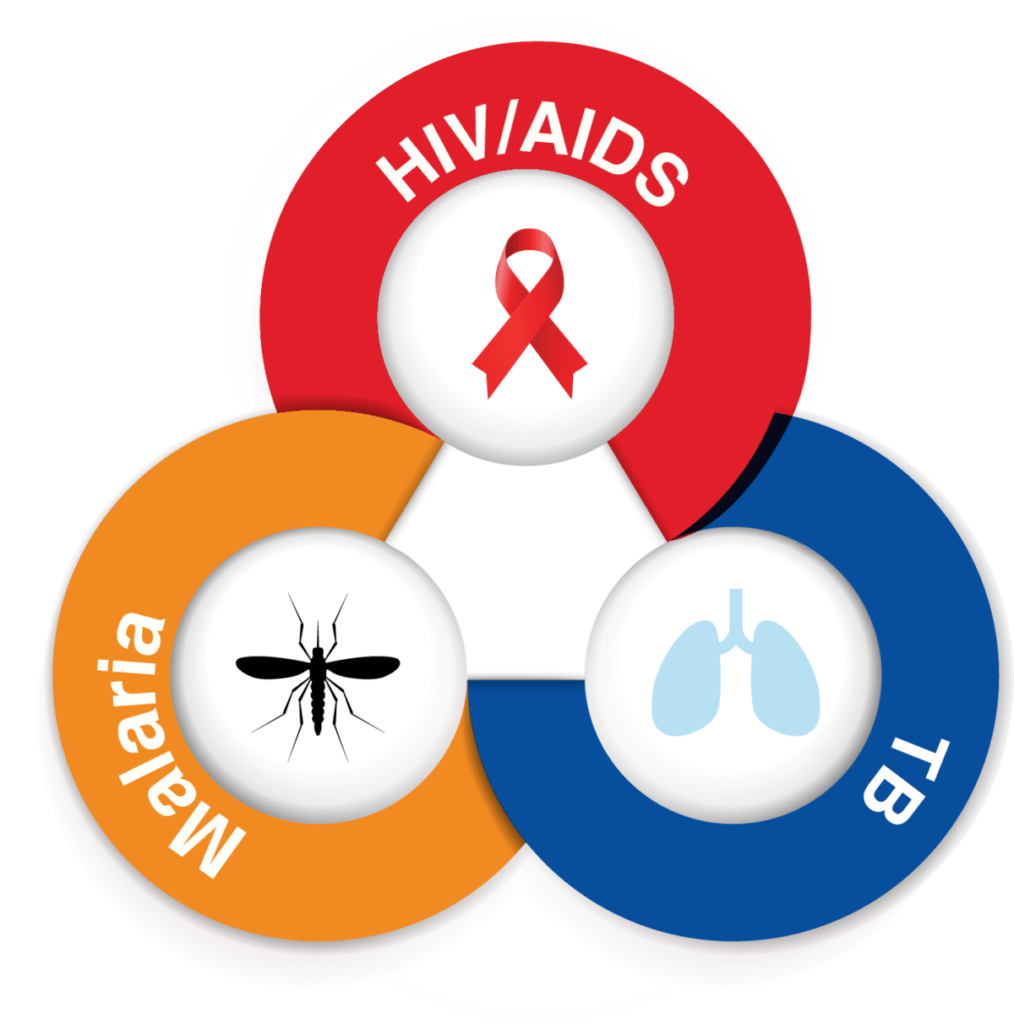Regaining Momentum in the Fight against AIDS, Tuberculosis, and Malaria
Regaining Momentum in the Fight against AIDS, Tuberculosis, and Malaria

As the COVID-19 pandemic has dominated attention for the past 36 months, it may be hard to recall that the world saw major gains in the battle against three other deadly infectious diseases in the decades before COVID-19 struck.
The Global Fund to Fight AIDS, Tuberculosis and Malaria has been a seminal player in the fight to defeat these preventable scourges that tragically kill millions of people a year, largely among the world’s poorest communities.
Since its founding in 2002, this coalition of private and public donors has made remarkable progress, saving an estimated 50 million lives around the globe with evidence-based interventions.
For example, the percentage of those living with HIV on lifesaving antiretroviral treatment in the fund’s portfolio of dozens of countries went from nearly zero to 75% from 2002 to 2021. AIDS-related deaths declined 70% in Global Fund countries.
But the impact of the COVID-19 pandemic has been heartbreaking. For the first time in the fund’s history, several measures trended in the wrong direction in 2020.
Access to HIV testing and treatment started to recover in 2021, with 23.3 million people in fund-supported countries on antiretrovirals, up from 21.9 million in 2020.
Amid these painful setbacks, the fund promptly set up a COVID-19 financing mechanism to ease the impact on its operations. Awarding more than $4.3 billion to 131 countries, some indicators have recovered, but the world is still off track in meeting the United Nations Sustainable Development Goals.
MSH has been proud to work with our partners and the fund across several countries to regain momentum, building on our 15 years of experience with this key donor.
The alliance is a natural extension of MSH’s mission.
As the largest multilateral investor in systems for health, the fund supports rigorous health worker training, strengthens supply chains to ensure access to necessary medicines and related products, and bolsters health information systems to support effective decision making.
Our most recent partnership with the fund has been in malaria prevention and treatment in Nigeria. The struggle against the mosquito-borne disease won’t be won if we don’t take strides in Africa’s most populous country—where more than a quarter of all malaria deaths occur.
In 2021, MSH worked with the Global Fund and Catholic Relief Services to train 21,000 health workers at the local, regional, and national levels to deliver long-lasting antimalaria medicine to those most at risk during the rainy season. More than 2.5 million children under 5 received seasonal malaria chemoprevention (SMC) in the states of Katsina and Taraba, exceeding our coverage goals.
In Benin, MSH teamed with the fund and the US President’s Malaria Initiative to roll out a mobile app so health workers could better collect data to monitor its SMC campaigns. Aided by these and other innovations, by 2021, 90% of children under 5 in six health zones were treated.
Now, the world stands at a critical juncture as government leaders meet in New York this month to replenish financing for the fund’s next three-year cycle. The Global Fund seeks $18 billion to sustain its work.
The US has maintained a leadership role, committing $6 billion. But crucially, US legislation requires a match from other donors. If our peers don’t step up, full contributions from the US will be lost.
As we know from the current pandemic, investments in global health pay dividends across borders and beyond any one disease.
Despite the scale of the pandemic and speed of its spread, countries were able to rapidly plan and execute effective response actions thanks to platforms already supported by the Global Fund.
In Angola, for example, MSH strengthened a community health information system initiated under an earlier project and used by nongovernmental organizations that provide HIV services that feeds individual patient data into the national health information system.
Those data help ensure that providers see patient histories and provide consistent care while guiding management of services and supplies, including channeling the right resources to halt the progress of disease outbreaks such as HIV and COVID-19.
And earlier this year, we trained 9,000 community members to distribute 3.7 million insecticide-treated bed nets to cover nearly 90% of the 8 million people living in Nigeria’s Delta state. This team also delivered key public health education on strategies to prevent malaria, as well as COVID-19 prevention and testing information.
A financially sound Global Fund will help countries rebound with targeted approaches like these that help shore up their health infrastructure to be ready for the next health crisis. We applaud Germany’s recent commitment of 1.3 billion euros, a 30% boost from the last cycle, as well as Japan’s pledge of up to $1.08 billion.
That leaves roughly $9 billion in pledges yet to be committed.
Now is not the time to take our foot off the gas pedal. We stand ready to support the Global Fund continue the fight and call on all stakeholders to do the same.